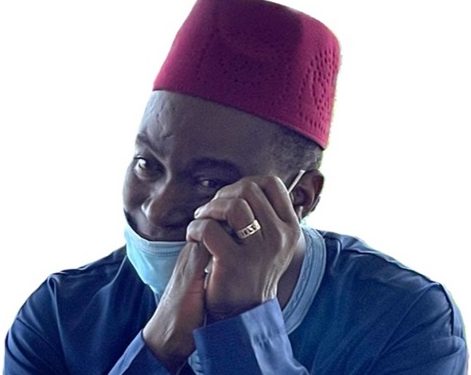By Hassan Osman Kargbo
The All People’s Congress (APC) has formally withdrawn its 2023 presidential candidate, Dr. Samura Mathew Wilson Kamara, from his role as Chief Negotiator in the ongoing Agreement for National Unity. The decision marks a significant shift in the party’s representation in the high-stakes dialogue with the government.
Confirming the development, APC National Secretary General Lansana Dumbuya Esq. noted that the party had officially replaced Dr. Kamara. “Yes, Dr. Samura Kamara has been withdrawn,” he said, without providing details on the reasons for the move or the internal deliberations that led to the decision.
The announcement has already sparked reactions from political observers, many of whom see Dr. Kamara’s removal as an unexpected turn in the implementation of the Agreement for National Unity, which was signed to ease political tensions, strengthen governance reforms, and promote inclusivity after the disputed 2023 elections.
While the APC has yet to formally announce who will permanently take up the position of Chief Negotiator, the government appears to have accepted the change and moved forward.
The Chief Minister who’s Co-Chair of the Tripartite Committee on Electoral Systems, Dr. David Moinina Sengeh, confirmed on social media that he had been officially informed of the APC’s decision.
“I was informed by the APC Secretary General that their party has changed Dr. Samura Kamara as the Chief Negotiator in the Agreement for National Unity. I look forward to working with their new Negotiator, Dr. Kelfala Marrah,” Dr. Sengeh wrote.
Dr. Kelfala Marrah, a former Minister of Finance in ex-president Ernest Bai Koroma led administration and respected technocrat within the APC, is widely regarded as one of the party’s sharpest policy minds. Dr Marah’s designation to replace Dr. Kamara, though not yet officially announced by the APC party, signals a strategic reshuffle in the opposition’s approach to the unity dialogue.
Political analysts say the move could have far-reaching implications. Dr. Kamara, who has contested the presidency twice, is seen as the face of the APC’s electoral justice struggle. His withdrawal may reflect the party’s attempt to separate its political leadership from its role in the ongoing negotiations, in order to project fresh perspectives and possibly reduce political friction.
At the same time, the inclusion of Dr. Marrah could give the APC a stronger technical footing in discussions that are expected to shape Sierra Leone’s democratic and governance future. His reputation for fiscal discipline and administrative expertise may allow the opposition to assert more leverage in negotiating reforms, especially on issues of electoral transparency and institutional accountability.
The Agreement for National Unity, signed between the ruling Sierra Leone People’s Party (SLPP) and the APC earlier this year, was designed as a framework to bridge deep divisions following a tense and contested election. Central to the agreement is the Tripartite Committee tasked with reviewing the electoral process, fostering inclusivity, and recommending long-term reforms.
With Dr. Kamara’s exit, the spotlight now turns to how Dr. Marrah will navigate his new role and whether his appointment will bring renewed momentum to the dialogue. Both the government and the APC face the challenge of demonstrating that the agreement is not only symbolic but capable of producing tangible reforms that strengthen democracy and national cohesion.
As the process continues, Sierra Leoneans are watching closely to see whether the change in personnel will disrupt progress or open new opportunities for compromise and consensus.













